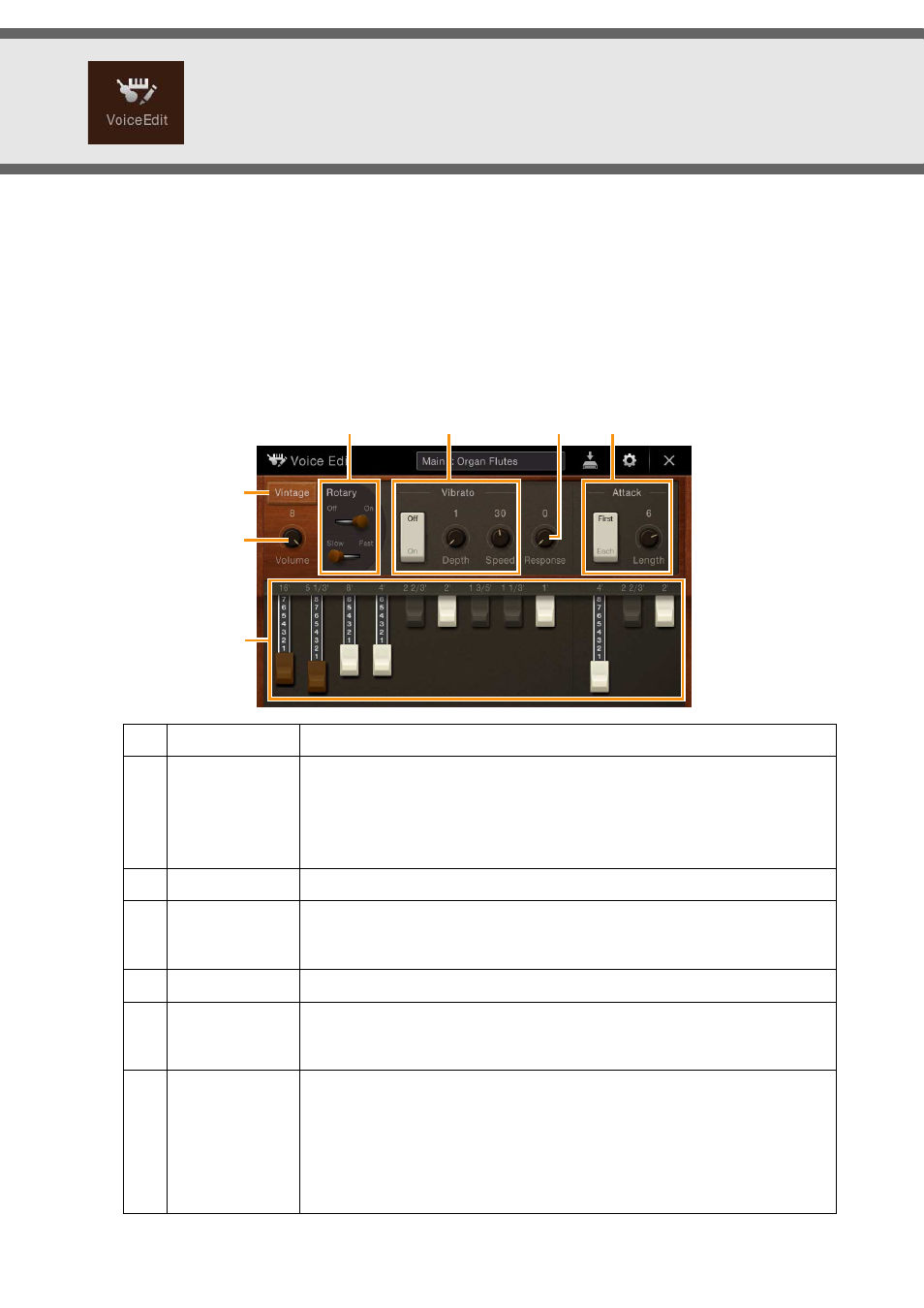Editing an organ flutes voice (voice edit) – Yamaha CVP-705B User Manual
Page 46

CVP-709/CVP-705 Reference Manual
46
Editing an Organ Flutes Voice (Voice Edit)
The Organ Flute Voices can be edited by adjusting the footage levers, adding the attack sound, applying effect and
equalizer, etc.
1
Select the desired Organ Flutes Voice.
From the [Organ] Category, touch [Organ Flutes], then select the desired Organ Flutes Voice.
2
On the Voice Edit display called up via [Menu] → [VoiceEdit], select the desired parameter
then edit the value.
NOTE
The Voice Edit display for the Organ Flutes Voices can also be called up by touching the Organ Flutes icon at upper right
of the Organ Flutes Voice name in the Home display. This is useful for adjusting footage settings and controlling the rotary
speaker while you play.
Footage
Determines the basic sound of the organ flutes.
Organ Type
Specifies the type of organ tone generation to be simulated.
• Sine: Produces a clean, clear sound.
• Vintage: Produces a gritty, slightly distorted sound.
• Euro: Produces the sound of the transistor electronic organ equipped with the
electronic tremolo.
Volume
Adjusts the overall volume of the Organ Flutes.
Rotary Speaker
Turns on or off the Rotary Speaker and switches the Rotary Speaker speed between
the “Slow” and “Fast.” This parameter is available only when an effect which
contains “Rotary” or “Rot” in its name is applied.
Vibrato
Turns on or off the vibrato, and adjusts its depth and speed.
Response
Affects both the attack and release (
) portion of the sound, increasing or
decreasing the response time of the initial swell and release, based on the Footage
controls. The higher the value, the slower the swell and release.
Attack
Selects “First” or “Each” as the Attack mode and adjusts the Attack length of the
sound.
In the First mode, attack (percussive sound) is applied only to the first notes played
and held simultaneously; while the first notes are held, any subsequently played
notes have no attack applied. In the Each mode, attack is applied equally to all notes.
The Attack length produces a longer or shorter decay immediately after the initial
attack. The longer the value, the longer the decay time.
